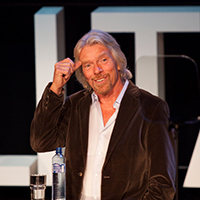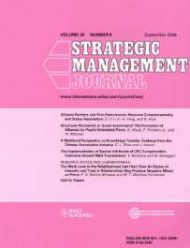Management
Epistemic vices in organizations: knowledge, truth, and unethical conduct (2018)
The conviction that one has authority or superiority where one in fact lacks it is a sign of epistemic hubris, and business leaders who possess this trait "indulge in a...
Written by: Christopher Baird, Thomas S Calvard
Read morePower corrupts, but control does not: what stands behind the effects of holding high positions (2018)
New research aims to disentangle the relationships between holding high positions, power over others, personal control, and antisocial tendencies. Cislak, A., Cichocka, A., Wojcik, A. D., & Frankowska, N. Personality and...
Written by: Aleksandra Cislak, Aleksandra Cichocka, Adrian Dominik Wojcik and Natalia Frankowska
Read moreManagerial hubris detection: the case of Enron (2018)
Eckhaus, E. & Sheaffer, Z. Department of Economics and Business Administration, Ariel University, Israel Risk Management (2018) pp 1-22. https://doi.org/10.1057/s41283-018-0037-0 Image: Scott Beale/ Flickr (CC-BY-NC-ND 2.0) New research from scientists at the Ariel University...
Written by: Eyal Eckhaus, Zachary Sheaffer
Read moreWhy toxic people get ahead (2018)
Templer, K. J. Personality and Individual Differences, Volume 124, 1 April 2018 New research indicates that some character traits found in some leaders can be 'dark', yet rewarded. The paper,...
Written by: Daedalus admin
Read moreAutocratic leaders and authoritarian followers revisited: A review and agenda for the future (2018)
"...Individuals pursuing a more autocratic style of leadership are likely to be more calculating, self-interested, have a higher need for power..." Harms, P. D., Wood, D., Landay, K., Lester, P....
Written by: P.D Harms, Dustin Wood, Karen Landlay, Paul B. Lester, Gretchen Vogelgesang Lester
Read moreHedge fund managers with psychopathic tendencies make for worse investors (2018)
“When choosing our leaders in organizations and in politics, we should keep in mind that psychopathic traits—like ruthlessness and callousness—don’t produce the successful outcomes that we might expect them to.”...
Written by: Leanne ten Brink, Aimee Kish, Dacher Keltner
Read moreThe dynamics of intuition and analysis in managerial and organizational decision making (2017)
A new paper concerned with the dynamics of conscious and non-conscious cognitive processes on behaviours in the workplace environment, is released. Hodgkinson G., and Sadler-Smith E. The Academy of Management Perspectives,...
Written by: Gerard Hodgkinson and Eugene Sadler-Smith
Read moreOpportunity creation: Entrepreneurial agency, interaction, and affect (2017)
...how do we understand "key entrepreneurial issues, such as creativity, frustration, hubris"? Goss, D., & Sadler‐Smith, E. Strategic Entrepreneurship Journal. Online ISSN: 1932-443X Image: Flickr / INMA/Jarle Naustvik A recent "article...
Written by: David Goss, Eugene Sadler Smith
Read moreSelf-esteem, tenure, and narcissistic leader’s performance (2016)
"...Narcissists often make a very good first impression, but a narcissistic leader can prove costly for an organisation, [as] such leaders often become unpopular after a short period of time...
Written by: Hanna Peltokangas
Read moreThe differential effects of CEO narcissism and hubris on corporate social responsibility (2018)
"...findings from a large sample of U.S. publicly listed firms suggest that narcissistic CEOs care more about corporate social responsibility, but hubristic CEOs care less." Tang, Y., Mack, D. Z.,...
Written by: Tang, Y., Mack, D. Z., & Chen, G
Read more














